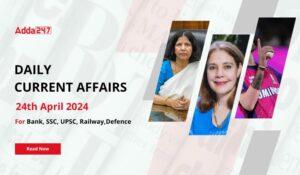Just a few days are left for SBI PO Examination. It is time to pace up your preparation with New Pattern Questions of English section for SBI PO Prelims 2017. These English questions will also help you in preparing for DENA BANK PO recruitment examination. We have also provided study notes for the grammatical part. You can practice New pattern English and Old pattern Questions as well.
Directions
(1-5): Each of the following questions has a paragraph from which the last
sentence has been deleted. From the given options, choose the one that
completes the paragraph in the most appropriate way.
(1-5): Each of the following questions has a paragraph from which the last
sentence has been deleted. From the given options, choose the one that
completes the paragraph in the most appropriate way.
Q1. Lower
winter temperatures were common in Europe during the second half of the 17th
century, famously allowing frost fairs to be held on the frozen Thames in
London before riverine developments increased the flow rate. These cold winters
coincided with the Maunder minimum in solar activity when the Sun remained
virtually free of sunspots for almost 50 years. However, establishing that this
was not just a chance occurrence requires that the relationship continue to
hold over a long interval, such that cold European winters become less frequent
when solar activity is high and then more common again when solar activity
falls. Various indicators show that during the recent minimum of the 11 year
sunspot cycle, the Sun has been quieter than at any time in the previous 90
years.
winter temperatures were common in Europe during the second half of the 17th
century, famously allowing frost fairs to be held on the frozen Thames in
London before riverine developments increased the flow rate. These cold winters
coincided with the Maunder minimum in solar activity when the Sun remained
virtually free of sunspots for almost 50 years. However, establishing that this
was not just a chance occurrence requires that the relationship continue to
hold over a long interval, such that cold European winters become less frequent
when solar activity is high and then more common again when solar activity
falls. Various indicators show that during the recent minimum of the 11 year
sunspot cycle, the Sun has been quieter than at any time in the previous 90
years.
(a) This
means that solar activity during the current sunspot minimum has fallen to
levels unknown since the start of the 20th century.
means that solar activity during the current sunspot minimum has fallen to
levels unknown since the start of the 20th century.
(b) This
yields an opportunity for a better test of the relationship between solar
activity and cold European winters.
yields an opportunity for a better test of the relationship between solar
activity and cold European winters.
(c) This
proves that cold winters occur more commonly in the UK during low solar
activity.
proves that cold winters occur more commonly in the UK during low solar
activity.
(d) This
regional and seasonal effect relating to European winters may have a global
effect.
regional and seasonal effect relating to European winters may have a global
effect.
(e) None of
these is relevant
these is relevant
Q2. Debt is
more common in families with disabled children: the parents were unable to keep
up with any local property taxes, water, and telephone bills, and were not
likely to be able to afford basic items such as a family holiday once a year, a
bicycle, or even two pairs of shoes. A disabled baby needs more nappies. Families’
ability to work grows difficult, and finding childcare is a real burden.
Households with disabled children will depend more on social security benefits
and are faced with the additional financial costs associated with caring for a
disabled child.
more common in families with disabled children: the parents were unable to keep
up with any local property taxes, water, and telephone bills, and were not
likely to be able to afford basic items such as a family holiday once a year, a
bicycle, or even two pairs of shoes. A disabled baby needs more nappies. Families’
ability to work grows difficult, and finding childcare is a real burden.
Households with disabled children will depend more on social security benefits
and are faced with the additional financial costs associated with caring for a
disabled child.
(a) There is
a strong link between child disability and poverty.
a strong link between child disability and poverty.
(b) The
highest prevalence of childhood disability is found in the poorest families.
highest prevalence of childhood disability is found in the poorest families.
(c) It is an
adverse and serious social gradient that families with disabled face.
adverse and serious social gradient that families with disabled face.
(d) But
thanks to science, these children live longer and medicines keep them alive.
thanks to science, these children live longer and medicines keep them alive.
(e) None of
these is relevant
these is relevant
Q3. What a
super film experience Green Zone is! From the firecracker opening to the
sucker-punch climax, the film is a non-stop adrenalin rush. The hand-held
camera and natural light make you feel as if you are seeing the action from the
front, as if you have access to footage shot from a sniper’s sights. Whether it
is a Bourne-in-Baghdad kind of relentless action thriller or a strong statement
against the U.S. war in Iraq, (incidentally, it is both) Green Zone succeeds as
a pure cinema, delivering thrills, spills and chills in breathless succession
hardly giving anyone time to breathe.
super film experience Green Zone is! From the firecracker opening to the
sucker-punch climax, the film is a non-stop adrenalin rush. The hand-held
camera and natural light make you feel as if you are seeing the action from the
front, as if you have access to footage shot from a sniper’s sights. Whether it
is a Bourne-in-Baghdad kind of relentless action thriller or a strong statement
against the U.S. war in Iraq, (incidentally, it is both) Green Zone succeeds as
a pure cinema, delivering thrills, spills and chills in breathless succession
hardly giving anyone time to breathe.
(a) This is
a movie that takes you on a thrilling, provocative, exhilarating ride.
a movie that takes you on a thrilling, provocative, exhilarating ride.
(b) There is
really nothing more you could ask for from a movie.
really nothing more you could ask for from a movie.
(c) Green
Zone effectively knits several strands together to make a cohesive whole.
Zone effectively knits several strands together to make a cohesive whole.
(d) The plot
is taut and truthful.
is taut and truthful.
(e) None of
these is relevant
these is relevant
Q4. Talented
youth can ill-afford to resign to their fate just because they can’t properly
communicate in English. They should confront the challenges which should, in
fact, bring out their best. A little confidence and hard work are all that is
needed for them to climb up the career ladder. For that they need to develop
communication skills in English, shape up their personalities and acquire the
much-needed knowledge.
youth can ill-afford to resign to their fate just because they can’t properly
communicate in English. They should confront the challenges which should, in
fact, bring out their best. A little confidence and hard work are all that is
needed for them to climb up the career ladder. For that they need to develop
communication skills in English, shape up their personalities and acquire the
much-needed knowledge.
(a)
Knowledge and communication skills are the key ingredients that make up the
recipe for success.
Knowledge and communication skills are the key ingredients that make up the
recipe for success.
(b) Students
have to act as leaders in the college itself.
have to act as leaders in the college itself.
(c) Success
will automatically follow.
will automatically follow.
(d) Speaking
and writing in English are important, thinking in English is twice as
important.
and writing in English are important, thinking in English is twice as
important.
(e) None of
these is relevant
these is relevant
Q5.
Philosophy of music has been dominated by the view that the best music is
autonomous and formally complex. As recently as 1990, philosophy of popular
music consisted of variations on a single theme. Philosophers defended the twin
assumptions that popular music is essentially different from “serious” or art
music, and that the former is aesthetically inferior to the latter.
Philosophy of music has been dominated by the view that the best music is
autonomous and formally complex. As recently as 1990, philosophy of popular
music consisted of variations on a single theme. Philosophers defended the twin
assumptions that popular music is essentially different from “serious” or art
music, and that the former is aesthetically inferior to the latter.
(a) As a
result, music could not be regarded as art if it lacked genius and autonomy.
result, music could not be regarded as art if it lacked genius and autonomy.
(b) As a
result, popular music competes with and replaces local and regional folk
traditions.
result, popular music competes with and replaces local and regional folk
traditions.
(c) As a
result, most philosophers concentrated on identifying the aesthetic
deficiencies inherent in popular music.
result, most philosophers concentrated on identifying the aesthetic
deficiencies inherent in popular music.
(d) As a
result, philosophers have investigated popular music by identifying and
critiquing key concepts that shape our response to this music.
result, philosophers have investigated popular music by identifying and
critiquing key concepts that shape our response to this music.
(e) None of
these is relevant
these is relevant
Directions
(6-15): In the following questions, two sentences are given. There may be an
error in the sentence(s). Mark as your correct answer.
(6-15): In the following questions, two sentences are given. There may be an
error in the sentence(s). Mark as your correct answer.
Q6. I.
Although he was innocent, baseless accusations were leveled at him.
Although he was innocent, baseless accusations were leveled at him.
II. Despite
of repeated representations from the people, the authorities have failed to
take any action.
of repeated representations from the people, the authorities have failed to
take any action.
(a) if there
is an error only in the first sentence;
is an error only in the first sentence;
(b) if there
is an error only in the second sentence;
is an error only in the second sentence;
(c) if there
are errors in both sentences; and
are errors in both sentences; and
(d) if there
is no error in either of the sentences.
is no error in either of the sentences.
(e) None of
these is relevant
these is relevant
Q7. I. I
deem it as a privilege to address the gathering.
deem it as a privilege to address the gathering.
II.
Perfection can be achieved with practice.
Perfection can be achieved with practice.
(a) if there
is an error only in the first sentence;
is an error only in the first sentence;
(b) if there
is an error only in the second sentence;
is an error only in the second sentence;
(c) if there
are errors in both sentences; and
are errors in both sentences; and
(d) if there
is no error in either of the sentences.
is no error in either of the sentences.
(e) None of
these is relevant
these is relevant
Q8. I. She
has great skill for painting.
has great skill for painting.
II. Having
overslept himself, he missed his train.
overslept himself, he missed his train.
(a) if there
is an error only in the first sentence;
is an error only in the first sentence;
(b) if there
is an error only in the second sentence;
is an error only in the second sentence;
(c) if there
are errors in both sentences; and
are errors in both sentences; and
(d) if there
is no error in either of the sentences.
is no error in either of the sentences.
(e) None of
these is relevant
these is relevant
Q9. I. I am
interested in painting from my childhood.
interested in painting from my childhood.
II. Life was
a hard struggle for him; but ultimately he emerged victorious.
a hard struggle for him; but ultimately he emerged victorious.
(a) if there
is an error only in the first sentence;
is an error only in the first sentence;
(b) if there
is an error only in the second sentence;
is an error only in the second sentence;
(c) if there
are errors in both sentences; and
are errors in both sentences; and
(d) if there
is no error in either of the sentences.
is no error in either of the sentences.
(e) None of
these is relevant
these is relevant
Q10. I. One
cannot make a success of his career, unless he works hard.
cannot make a success of his career, unless he works hard.
II. In spite
of he being very tired, he kept on working.
of he being very tired, he kept on working.
(a) if there
is an error only in the first sentence;
is an error only in the first sentence;
(b) if there
is an error only in the second sentence;
is an error only in the second sentence;
(c) if there
are errors in both sentences; and
are errors in both sentences; and
(d) if there
is no error in either of the sentences.
is no error in either of the sentences.
(e) None of
these is relevant
these is relevant
Q11. I. By
virtue of the power vested in me, I hereby order his imprisonment.
virtue of the power vested in me, I hereby order his imprisonment.
II. He
succeeded by his acute perseverance and sheer hard work.
succeeded by his acute perseverance and sheer hard work.
(a) if there
is an error only in the first sentence;
is an error only in the first sentence;
(b) if there
is an error only in the second sentence;
is an error only in the second sentence;
(c) if there
are errors in both sentences; and
are errors in both sentences; and
(d) if there
is no error in either of the sentences.
is no error in either of the sentences.
(e) None of
these is relevant
these is relevant
Q12. I.
Napoleon had a genius by military tactics.
Napoleon had a genius by military tactics.
II. Without
doubt he is a genius for mathematics.
doubt he is a genius for mathematics.
(a) if there
is an error only in the first sentence;
is an error only in the first sentence;
(b) if there
is an error only in the second sentence;
is an error only in the second sentence;
(c) if there
are errors in both sentences; and
are errors in both sentences; and
(d) if there
is no error in either of the sentences.
is no error in either of the sentences.
(e) None of
these is relevant
these is relevant
Q13. I. As
you have made your bed so you must lie on it.
you have made your bed so you must lie on it.
II. So good
a man is he that all respect him.
a man is he that all respect him.
(a) if there
is an error only in the first sentence;
is an error only in the first sentence;
(b) if there
is an error only in the second sentence;
is an error only in the second sentence;
(c) if there
are errors in both sentences; and
are errors in both sentences; and
(d) if there
is no error in either of the sentences.
is no error in either of the sentences.
(e) None of
these is relevant
these is relevant
Q14. I. Had
I not seen this with my own eyes I will not have believed it.
I not seen this with my own eyes I will not have believed it.
II.
Whichever road we take we shall be too late.
Whichever road we take we shall be too late.
(a) if there
is an error only in the first sentence;
is an error only in the first sentence;
(b) if there
is an error only in the second sentence;
is an error only in the second sentence;
(c) if there
are errors in both sentences; and
are errors in both sentences; and
(d) if there
is no error in either of the sentences.
is no error in either of the sentences.
(e) None of
these is relevant
these is relevant
Q15. I. No
doubt he has achieved much, but I cannot give him credit for all that he boasts
for.
doubt he has achieved much, but I cannot give him credit for all that he boasts
for.
II. The
despotism of custom is everywhere the standing hindrance by human achievement.
despotism of custom is everywhere the standing hindrance by human achievement.
(a) if there
is an error only in the first sentence;
is an error only in the first sentence;
(b) if there
is an error only in the second sentence;
is an error only in the second sentence;
(c) if there
are errors in both sentences; and
are errors in both sentences; and
(d) if there
is no error in either of the sentences.
is no error in either of the sentences.
(e) None of
these is relevant
these is relevant




 The Hindu Review October 2022: Download ...
The Hindu Review October 2022: Download ...
 Important Days in April 2024, Know The L...
Important Days in April 2024, Know The L...
 Daily Current Affairs 24th April 2024, I...
Daily Current Affairs 24th April 2024, I...



